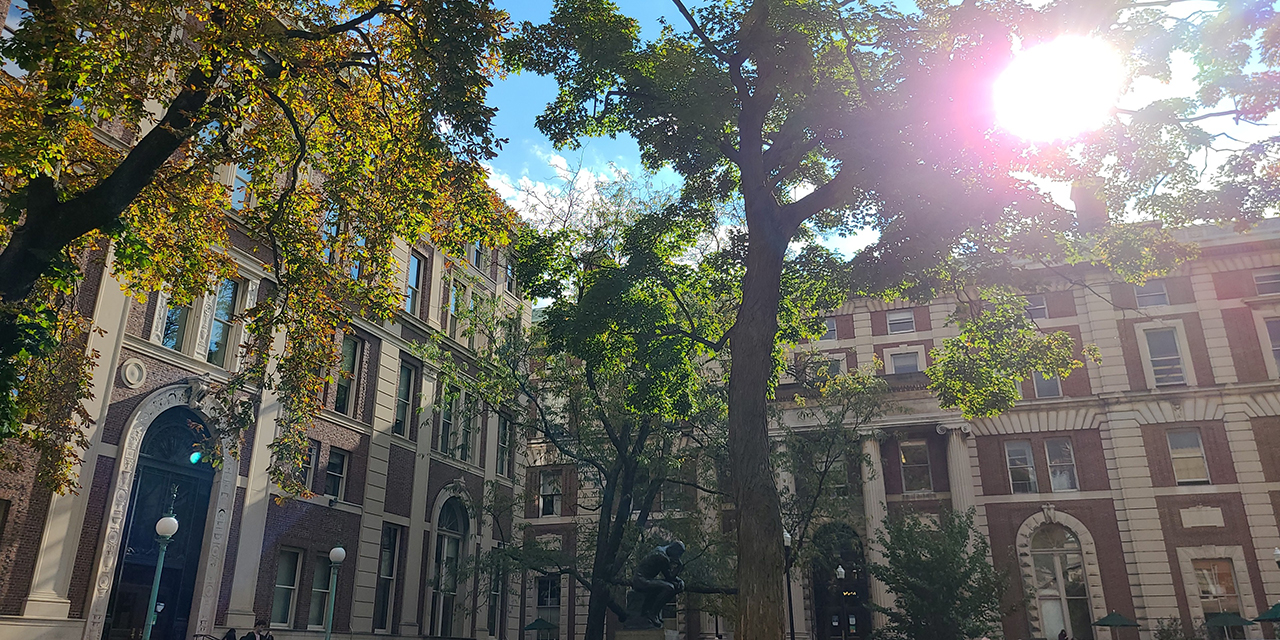
Columbia University has told the Trump administration that it’s cracking down on anti-Semitic violence and intimidation and winding down DEI. But behind closed doors, the university’s Office of Institutional Equity (OIE), a new bureaucracy supposedly set up to address campus anti-Semitism, is targeting me for expressing my Catholic faith.
I recently received an email from the OIE accusing me of “conduct that could constitute discriminatory harassment.” The message included no details, and when I asked for clarification, OIE didn’t provide any. But I’m familiar with how liberal institutions often operate, and I suspected that the matter concerned my public statements on social media. I was right.
Finally, a reason to check your email.
Sign up for our free newsletter today.
In a meeting with three OIE officials—who identified themselves as “investigators”—I was informed that I had been the subject of “multiple complaints.” They insisted that their goal wasn’t to discipline me but to “make sure this doesn’t escalate into a disciplinary outcome.” This process, they assured me, was “for my own benefit.” How kind of them.
They then showed me screenshots of my social media posts, treating my public Catholic beliefs as if they were prohibited. I smiled when I saw them. I had nothing to regret. One post read: “God does not teach us that we can change our gender.” Another referenced a conversation with a Catholic friar in which I questioned his use of pronouns and challenged whether he believes in transgenderism. In several posts, I celebrated how Republicans like Mike Pence and Nikki Haley supported bans on minor gender transition surgery. You can view the posts here.
The investigators also brought up my appearance on Timcast, where I said that immigrants with facial tattoos who look like criminals should be screened more carefully. The example I gave was a child sex trafficker. Columbia thinks that this approach is discriminatory. I think most Americans would call it common sense.
At the end of their presentation, I said, “I am totally open to at some point having said something I didn’t believe in . . . but in all the cases that you showed me, I absolutely stand by what I said.” Apart from the statements on immigration, which were defensible on their own terms, the rest were basic expressions of my Catholic faith, not hate or harassment. But to Columbia, voicing my Catholic faith was enough to make me the subject of an investigation.
The investigators warned me: even though I have First Amendment rights, my posts could be “creating a hostile environment.” These expressions of Catholic faith—“hypothetically, if you have a trans classmate that sees this”—could make someone feel unsafe even to “walk on campus,” they advised.
I responded, “If someone is offended, that’s not going to stop me from sharing what I believe. The overwhelming majority of people in this country agree with what I said. . . . I just don’t believe men can become women and women can become men. It is crazy to me that in 2025 there are people reporting me for an opinion that 90 percent of humans share.” They insisted that they weren’t policing speech—but that’s exactly what they were doing.
One of the investigators told me that posting about the decline of Christianity could make people of other religions feel excluded. They asked, “Can someone else share their opinion with you the way you do?” I answered, “Yes—and I’m offended by many opinions, but that doesn’t make them harassment.”
Columbia’s policy defines creating a “hostile environment” as any action that merely makes another person feel uncomfortable. It’s impossible to apply such a vague and subjective standard fairly, as Columbia has demonstrated by enforcing it selectively against me.
At the end of the meeting, the investigators told me to “think about this conversation” before I post again. I replied, “Can you understand that this sounds threatening?”
The Foundation for Individual Rights and Expression (FIRE), which defends free speech rights on college campuses, has stepped in to support me. They have warned Columbia not to retaliate against me for expressing protected views.
The entire episode confirmed my worst fears: Columbia is willing to use bureaucratic pressure to silence students who express Christian beliefs. That is not protecting students; it is excluding us.
To all students who have been told that their faith or conservative views amount to hate speech, here’s my advice: don’t back down. Your beliefs aren’t dangerous; they’re sacred. And they remain essential to the American experiment in free expression and self-government. No Ivy League bureaucracy can change that.
Photo: Courtesy of the Author
City Journal is a publication of the Manhattan Institute for Policy Research (MI), a leading free-market think tank. Are you interested in supporting the magazine? As a 501(c)(3) nonprofit, donations in support of MI and City Journal are fully tax-deductible as provided by law (EIN #13-2912529).
Source link















